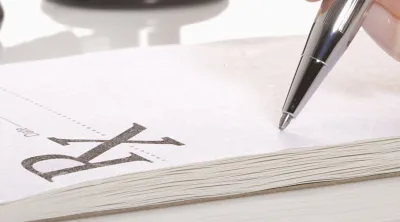The opioid addiction and overdose crisis touches every state in the nation. But Louisiana is especially hard-hit.
“There are more opioid prescriptions in Louisiana than there are people,” says Michael Tipton, head of the Blue Cross and Blue Shield of Louisiana Foundation. That’s more than 4.5 million doses, putting Louisiana at No. 6 in the nation for highest per capita prescription rates. Opioid-related emergency room visits are mounting. More than 860 Louisianans died of opioid overdoses in 2015, according to the Centers for Disease Control and Prevention, up more than 12 percent from 2014.
Teaching doctors to have the tough conversations
Deirdre Barfield, M.D., Blue Cross and Blue Shield (BCBS) of Louisiana’s senior medical director, says insurers can help stem the epidemic in a few key ways. The first: offering more education for doctors about safe prescribing.
Barfield says patients who need opioid painkillers should be able to get them, but only the amount absolutely necessary. Yet helping patients understand why they’re receiving a seven-day supply versus a 30-day supply can sometimes be challenging. Doctors may need to address a patient’s expectations about pain and explain that it may not be possible to completely eliminate it.
Doctors also need more data to spot troubling prescription drug use among patients. And BCBS Louisiana has enhanced its data capability to support doctors in this effort. “We see a lot of ‘doctor-shopping,’” says Kandyce Cowart, head of fraud and abuse investigations, referring to the practice of seeking new opioid prescriptions from different doctors to avoid the detection of abuse. “We can now see who the top prescribing doctors and top opioid users are.”
Cowart has opened several investigations of doctors who prescribe more than the recommended guidelines. But she says most doctors want to prescribe safely, and awareness of the problem is growing. She hopes the combined effort to educate doctors, patients and citizens will help turn the opioid crisis in Louisiana around.
“We want the providers to do the right things for members, and we want to make that easy,” says Barfield. So BCBS Louisiana developed a toolkit for doctors who write the most opioid prescriptions. It contains guidelines for safe prescribing and a copy of a contract to sign with patients regarding safe opioid use. “It also gives them a checklist for opioid addiction screening and includes information on behavioral health resources available,” says Barfield. Other insurers around the country have taken similar approaches.
What’s unique about the BCBS Louisiana toolkit is that it also contains a fact sheet about the state’s online prescription drug monitoring program. BCBS Louisiana worked with the state to improve the process of signing up for and using the online program, which tracks a patient’s prescriptions. That accomplishment, says Barfield, “is a way we are indirectly improving the health and lives of all Louisianians.”
Encouraging citizens to dump unused opioids
Another key strategy to prevent addiction is to encourage people to get rid of unused opioids.
"Kids no longer go to a dark alley to purchase drugs,” Cowart says. “They get them from the medicine cabinet. That is a surprising wake-up call for people."
Research shows safe medication disposal is one of the best ways to ensure medications are not accidently used or intentionally misused by someone other than the intended patient. So the insurer has sponsored 44 drug take-back boxes in 33 parishes across the state, with 10 of those in partnership with the state attorney general’s office and more to come in 2018.
Nationwide, the Blue Cross Blue Shield Association, along with AmerisourceBergen, Pfizer and Prime Therapeutics, is working together with Walgreens to expand the availability of safe medication disposal kiosks at Walgreens stores to make disposing of unwanted medications even more convenient and accessible.
Making safety the standard
BCBS Louisiana has a few more levers it can pull to help stem the opioid addiction epidemic. “I think we can control access, we can control quantity and we can serve as a conduit for education to both the providers and members,” says Barfield.
Specifically, the insurer now requires a prior authorization (a form asking permission in advance for certain medical treatments) for a prescription for short-acting opioids above a seven-day supply. And when it comes to long-acting opioids, BCBS Louisiana will require a prescriber to certify that the patient’s treatment plan includes other approaches to pain relief and that the patient has been screened for addiction risk.
Barfield wants patients to understand that the new measures aren’t intended to withhold treatment from patients who need it. “We’re about getting the right care to the right person in the right setting,” she says. “It’s about preventing that next addiction, preventing that next overdose.”

